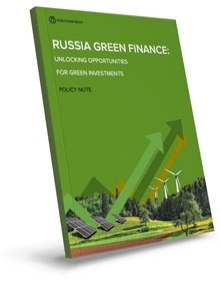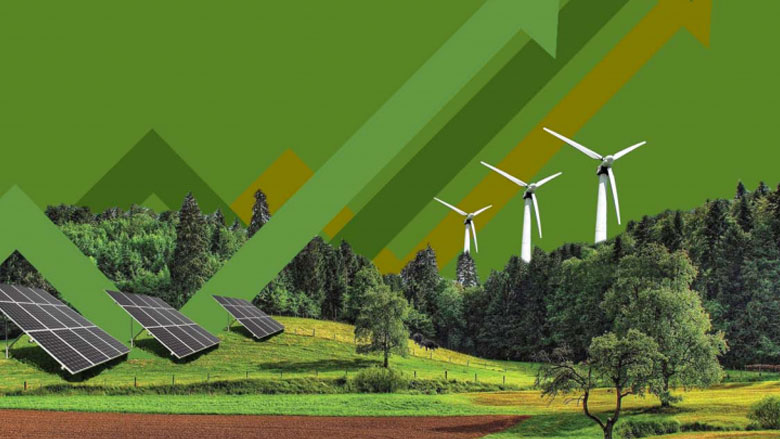 Russia Green Finance: Unlocking Opportunities for Green Investments
Russia Green Finance: Unlocking Opportunities for Green Investments

Policy Note, October 2018


Policy Note, October 2018
Natural resources are a significant source of income for Russia, and critical to its economic development. As such, Russia’s medium- to long-term growth prospects will depend greatly on how well its policies integrate environmental and natural resource management into economic planning.
For Russia, it is especially important to intensify efforts to “green” its economy in order to ensure economic sustainability, and to “green” its financial system with a view to mobilizing resources towards green investments and better managing risks. Russia would benefit from this for a number of reasons.
Improving resource efficiency could lead to economy-wide benefits and bring about savings for capital expenditures, while improvements in energy efficiency could reduce carbon emissions and create opportunities for the Russian economy to increase productivity and competitiveness.
As Russia moves towards implementing structural reforms to advance economic growth, one major effect on the economy from going green is the creation of new jobs and industries. Greening Russia’s economy will mean clean and resilient growth, and sustainable use of natural resources, thus extending the economic benefits to the poorest and most vulnerable citizens. Furthermore, green investments are generally more employment intensive, and have direct benefits in terms of poverty reduction.
Russia no longer has to choose between economic growth and environmental protection; these two goals can be achieved simultaneously, and result in economic prosperity and a preserved environment.
The green finance agenda has been gaining momentum in Russia since its profile was raised in 2017 at the Russia State Council. Gradually improving macro-economic and financial sector conditions provide a favorable environment for developing green finance, but for financial institutions and private investors to engage in green finance, the Russian authorities should put in place the right conditions and incentives.
An institutional partnership led by the Central Bank of Russia and consisting of the Ministry of Natural Resources and Ecology, the Ministry of Finance, and the Ministry of Economic Development, could have a central role in fostering an enabling environment for green finance. The Central Bank is well positioned to lead this partnership, as it is the financial sector regulator and the owner of the largest public banks.
This proposed partnership could develop a national green finance roadmap that identifies system-wide needs, barriers to private sector capital mobilization, and priority actions. In addition, the Central Bank of Russia could mobilize and support financial institutions to develop market-led initiatives, or it could endorse voluntary guidelines for green bond issuance, E&S risk management, or general green banking finance guidelines.
Russia’s financial sector would benefit from developing green finance to enhance resilience and improve financial performance. The financial sector is likely to have substantial exposure to “carbon risks,” being a carbon-intensive economy and a large producer of fossil-fuels. Green assets could provide a buffer against carbon transition risks in a portfolio that includes emissions-intensive assets.
A growing body of academic evidence highlights the benefits of enhanced investment returns through greening financial systems. Russia’s public financial development institutions could play a catalytic role in supporting the green finance strategy and generating a portfolio of green assets.